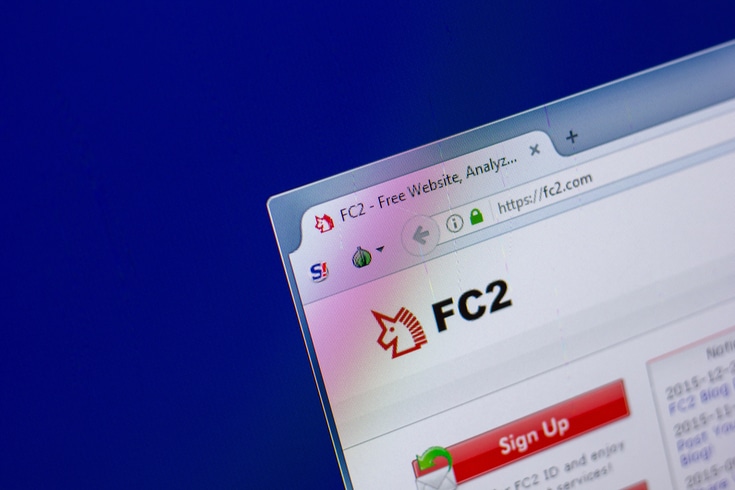How to Identify Malicious Commenters on the 'V-kei Tanuki Message Board

The “V-kei Tanuki Bulletin Board” (hereinafter referred to as “Tanuki”) includes several anonymous bulletin boards such as the “V-kei Original Tanuki Bulletin Board”, “V-kei Katanuki Bulletin Board”, “V-kei Old Tanuki”, and “Chat Tanuki”.
Here, we will explain how to identify malicious commenters on the “V-kei Original Tanuki Bulletin Board” and “Chat Tanuki”. All of these “Tanuki” bulletin boards are operated by the same administrator (details undisclosed), and the targets and procedures are the same for each.
What is the “Tanuki” Website?
“Tanuki” can be divided into two categories:
- “V-Kei Original Tanuki Bulletin Board”, “V-Kei Katanuki Bulletin Board”, “V-Kei Old Tanuki”, etc.
- “Chat Tanuki”
The “V-Kei Original Tanuki Bulletin Board” and similar sites are community services for fans of V-Kei (Visual Kei), serving as anonymous bulletin boards for information exchange, fan interaction, and casual conversation.
On the other hand, “Chat Tanuki”, a derivative site of the “V-Kei Original Tanuki Bulletin Board”, is an anonymous bulletin board dedicated to non-V-Kei related discussions. It is a place to discuss “topics completely unrelated to V-Kei”. The “Bulletin Board Usage Rules” include a reminder: “If a thread with an annoying purpose continues for a long time, remember to take it to the chat!”
Examples of Defamation on “Tanuki”

On the “V-Kei Original Tanuki Bulletin Board”, various information exchanges about bands take place. However, disputes among fans occur frequently, and defamation against members and fans of other bands is also prominent.
In addition to individuals being singled out and written about as having had plastic surgery, there are also instances of revealing interactions with band members with whom they’ve had physical relationships, publishing nude photos, exposing personal information such as addresses and names, and posts of revealing stories by family members or related parties.
“Chat Tanuki” is personalityized by having many threads related to popular streamers on “YouTube”, “Nico Nico”, “TwitCasting”, “Fuwacchi”, etc. These streamers tend to become easy targets for defamation by “anti” fans.
Request for Disclosure of Sender Information
Those who defame others or invade their privacy through illegal posts on the Internet bear liability for damages based on tort under the Japanese Civil Code. The victims can claim damages from the perpetrators based on this tort.
Depending on the content, criminal offenses such as defamation and obstruction of business may be established, in which case the perpetrator will also bear criminal responsibility.
In anonymous bulletin boards like “Tanuki”, it is impossible to know who and where the perpetrator is, making it impossible to claim damages.
Therefore, a procedure is carried out to identify the poster and pursue their responsibility. This is called a request for disclosure of sender information.
Procedure for Identifying the Poster ①: Request for IP Address Disclosure
Firstly, to identify the poster on “Tanuki”, a request for IP address disclosure is made to the operators of “Tanuki”.
IP Address and Timestamp
The operators of anonymous bulletin boards do not know the names or addresses of the posters. However, there is information that the operators definitely know. That is the poster’s “IP address and timestamp”.
An “IP address” is an address information on the Internet, and every machine connected to the Internet, such as home PCs and smartphones, has its own unique IP address. When a site is accessed or a post is made, the poster’s IP address and the time of access, the “timestamp”, are recorded by the content service provider. The first step is to request the disclosure of the poster’s IP address and timestamp.
Since the operators of “Tanuki” also have a duty to protect the secrets of the posters, they usually respond that they “cannot disclose without a court order”.
Therefore, it is necessary to initiate a “provisional disposition” to request the disclosure of the poster’s IP address and timestamp, in parallel with the dispatch of the “Sender Information Disclosure Request Form”. The “Sender Information Disclosure Provisional Disposition Order Application” is a procedure to obtain a decision from the court ordering the operators of “Tanuki” to comply with the disclosure.
If all goes well, a provisional disposition will be issued by the court in about 1-2 months, and the IP address and timestamp information will be promptly disclosed by the operator. The average attorney’s fee for this case is said to be
about 300,000 yen for the retainer fee, and about 300,000 yen for the success fee
https://monolith.law/reputation/reputation-lawyers-fee[ja]
It is said that in this procedure, it is possible to request the disclosure and deletion of the IP address at the same time. The above is the cost of doing both. However, the cost will naturally vary depending on the content and volume of the post in question.
Conditions for Requesting Disclosure of Sender Information

In order to identify the poster, it is necessary to request the disclosure of the poster’s information based on the Provider Liability Law (Japanese Provider Liability Law). There are several prerequisites for making a request for disclosure of sender information.
That a right has been infringed
It must be clear that a “right has been infringed” by the posted article. A request for information disclosure cannot be granted by asserting personal feelings such as “it is unpleasant and unforgivable” or “I want to know the name and address of the person who made such a post”.
For example, in the case of defamation, it is a prerequisite that the victim’s social evaluation has been lowered. However, it is difficult to determine whether defamation is established, whether it constitutes an invasion of privacy, or whether a crime of credit defamation can be questioned. We recommend consulting with an experienced lawyer for such judgments.
There is a legitimate reason
It is only granted when the requester has a legitimate reason to obtain the sender’s information. Examples of legitimate reasons are as follows.
- Necessary for a deletion request to the sender
- Necessary for the exercise of the right to claim damages in civil law
- Necessary for a request for reputation restoration, such as an apology advertisement
- Necessary for the exercise of the right to request an injunction
- Necessary to identify the person when taking legal measures such as criminal accusation
If the purpose is not clear, or if it is for an improper purpose such as private sanctions, it will not be granted.
Procedure for Identifying the Poster ②: Prohibition of Log Deletion
When an IP address is disclosed, it is possible to identify the intermediary provider used by the sender.
You will need to request the intermediary provider to disclose log information such as “the name and address of the subscriber who used the said IP address at a certain time and date”. However, the amount of this information is enormous. If it’s a mobile carrier, it would be tens of millions of people, and even for an intermediary provider, it would be millions of people. Therefore, intermediary providers delete logs after a certain period of time, about three months for mobile carriers and at most about a year for fixed-line providers. If too much time is taken between the post and the filing of a lawsuit, there is a high possibility that the logs will be deleted during that time.
When dealing with intermediary providers, you will be asking for significant personal information such as the sender’s name and address, and the usual civil lawsuit procedures are required. It often takes several months to complete a lawsuit, and during that time, the logs that the provider has saved may be deleted. Therefore, it is necessary to take provisional measures to prohibit the deletion of logs so that the evidence does not disappear.
However, if you notify the intermediary provider that “we are requesting the disclosure of the name and address through the court, so please keep the logs for a while”, in many cases, they will keep the logs without going through the provisional measures procedure.
Procedure for Identifying the Poster ③: Lawsuit for Disclosure of Sender Information
Once it is guaranteed that the access log is saved, you will need to file a lawsuit for the disclosure of sender information against the intermediary provider, seeking the disclosure of information about the sender such as ‘address, name, email address’, etc.
As a rule, intermediary providers do not comply with the disclosure of sender information unless the sender consents, and the address and name are significant personal information. The court will only allow the disclosure of the address and name if it recognizes it as illegal through a formal lawsuit procedure. The request for disclosure of sender information against the intermediary provider is not a provisional disposition, but a main lawsuit. The main issue of the lawsuit is whether the content of the target post clearly infringes on the rights of the plaintiff (the person requesting disclosure).
Procedure for Identifying the Poster ④: Claim for Damages
If the court determines that “rights have been infringed by the posted article” and “there is a legitimate reason,” it will order the provider through which the article was posted to disclose the name, address, email address, etc. of the subscriber who used the service at the time of posting.
Once the sender’s information is disclosed and the sender is identified, it becomes possible to claim damages, and the following actions can also be considered:
- Make them pledge not to repeat defamation in the future
- Claim the expenses incurred (investigation costs, attorney fees)
- File a criminal complaint
In addition to claiming damages, there are various other options for sanctions.
https://monolith.law/reputation/provider-liability-limitation-law[ja]
Summary
As seen with the issues arising on the “Tanuki” bulletin board, it is often the case that simply deleting posts containing defamatory or slanderous content on anonymous bulletin boards does not resolve the problem.
By identifying the individuals who post such malicious comments and holding them accountable, it is possible to prevent the escalation or recurrence of incidents.
Such procedures require prompt action and expertise in both law and IT, which can be challenging for laypeople. Consulting with a lawyer who specializes in internet-related issues can lead to an early resolution of the problem.
Category: Internet





















